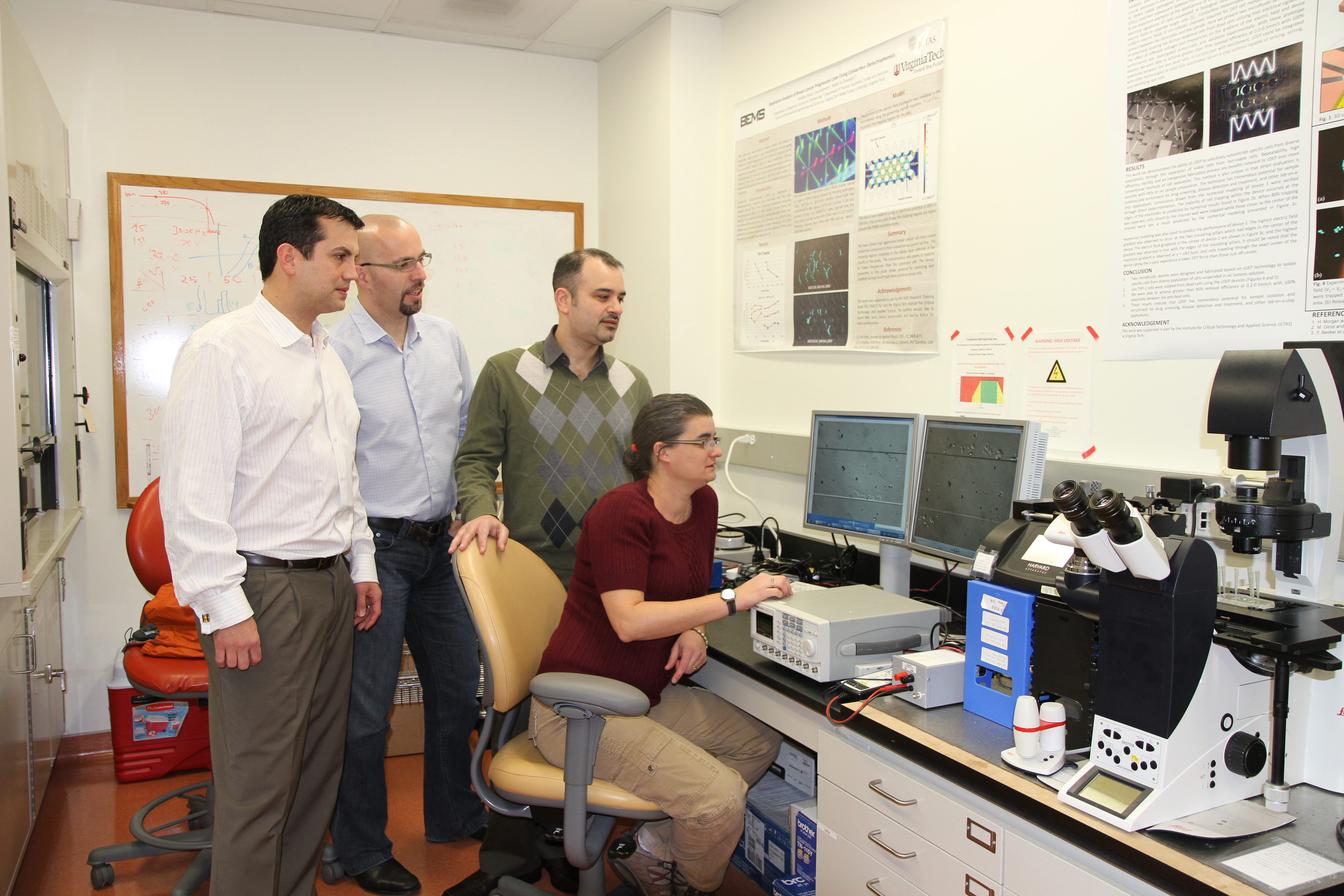Fralin researchers design potential blood thinner that also unmasks cancer cells

Virginia Tech researchers have discovered a potential way to create a new kind of anticoagulant drug commonly called a blood thinner.
Blood thinners are important for people with high blood pressure or who are at risk for heart attacks and strokes — leading causes of death in the United States.
But prescription blood thinners have long-lasting effects in the body and may cause unwanted side effects, including bleeding, according to Daniel Capelluto and Carla Finkielstein, associate professors of biological sciences in the College of Science who are affiliated with the Fralin Life Science Institute and the Virginia Tech Center for Drug Discovery.
Working with Rafael Davalos, an associate professor of biomedical engineering, and Pavlos Vlachos, a professor of mechanical engineering, both in the College of Engineering, the scientists created a microfluidic device that emulates flow conditions within a blood vessel to explore the therapeutic role of a naturally occurring protein called Disabled-2, which ultimately prevents blood from clotting.
From there, the scientists designed small molecules modeled after Disabled-2 that may have the potential to be developed into an efficient, safer blood thinner.
The discovery is reported in the Nov. 2, issue of the Journal of Biological Chemistry.
Cardiovascular disease is the leading cause of death in the United States and stroke is the fourth most common, according to the American Heart Association.
There are several advantages of the proposed new drug, researchers say, including its multi-targeted action, specificity, and rapid clearance from the blood stream after its therapeutic action is completed.
Because it is delivered via nanoparticles, it bypasses the immune system and causes no secondary effects in the patient — characteristics that may impact cancer treatment.
"When you have a metastatic process and cancer cells are moving through your bloodstream, the human immune system doesn’t seem to recognize them as bad cells. This is largely due to platelets that coat the cancer cells," Finkielstein said. "Our drug exposes the cancer cells to the immune system by essentially unmasking them. Thus, the drug can be used along with other technologies for cancer treatment."
The drug is linked to two patents owned by the researchers and Virginia Tech. Research was funded by the American Heart Association and a Fralin Life Science Institute seed grant. Investigators are also associated with the Multiscale Bio-Engineered Devices and Systems group within the Institute for Critical Technology and Applied Science.
The research team also included co-authors Shuyan Xiao, a postdoctoral associate in biological sciences; John J. Charonko, a research assistant professor in mechanical engineering; Xiangping Fu, a laboratory specialist in biological sciences; and Alireza Salmanzadeh of Tehran, Iran, a Ph.D. candidate in engineering, science, and mechanics in the College of Engineering.




